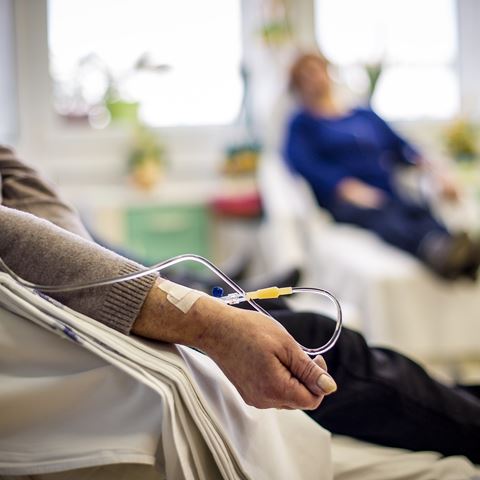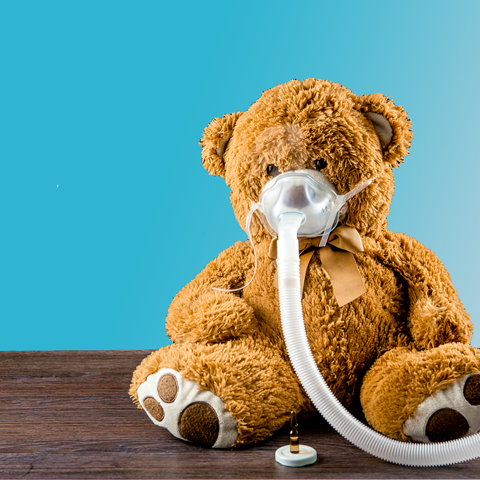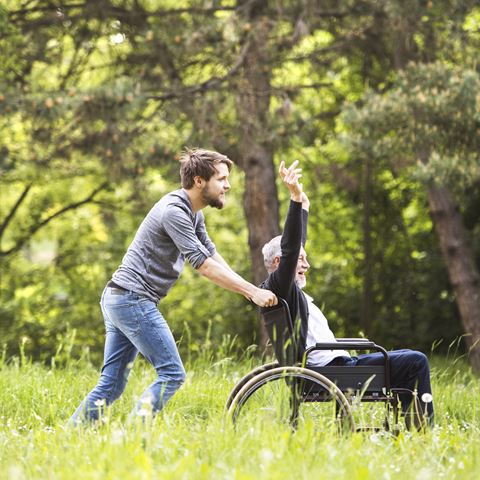Last week, the UK government announced that over 1.5 million people identified as being ‘extremely vulnerable’ to coronavirus should self-isolate at home for twelve weeks. This process is known as ‘shielding’ and is designed to protect people who are medically deemed ‘extremely vulnerable’ by minimising all interactions with other people.
Who are the 1.5 million ‘extremely vulnerable?
The government and NHS England have classified the following groups of people are ‘extremely vulnerable’ (1).
- Solid organ transplant recipients
- People with specific cancers (e.g.. lung cancer, cancers of the blood or bone marrow)
- People having immunotherapy or continuing antibody treatments for cancer
- People undergoing other targeted cancer treatments that affect the immune system (e.g.. protein kinase or PARP inhibitors)
- People with severe respiratory conditions (e.g. cystic fibrosis, asthma, COPD)
- People with rare diseases and inborn errors of metabolism which increase the risk of infection (e.g. homozygous sickle cell)
- People on immunosuppression therapies which significantly increase the risk of infection
- Women who are pregnant with significant heart disease, congenital or acquired.
There may be other individuals identified by NHS England as ‘extremely vulnerable’ who do not fit into the categories listed above. These individuals will be contacted directly by NHS England.
NHS England has been directly contacting the individuals listed above to advise them to self-isolate at home for twelve weeks. They’ve made it clear that shielding is designed for these individual’s own personal protection, however, it is up to the individual as to whether or not they choose to follow the government advice. It’s a deeply personal decision, and if an individual has concerns, they should discuss them with their GP or specialist.
What are these individuals being told to do?
Extremely vulnerable individuals have been told to stay at home at all times and avoid any face-to-face contact for a period of at least 12 weeks from the day that they receive a letter or message from NHS England. However, this period of time may change.
Can people visit the homes of the ‘extremely vulnerable’ to deliver essential support?
The government has advised that visits from people who provide essential support (e.g. healthcare, personal support or social care) should continue, but carers and care workers must stay away if they have any of the symptoms of coronavirus (COVID-19).
If your patient’s usual carers are unable to visit due to illness, they should have an alternative list of people who can help with their care. They can contact their local council for advice on how to access care.
What about those living alongside the ‘extremely vulnerable’?
The government has made it clear that if an ‘extremely vulnerable’ person has someone else living with them (e.g.. family, friends or carers), those in the household who are not ‘extremely vulnerable’ don’t need to follow the stringent protective shielding measures. Therefore, they can still leave the house in line with the current government.
At the time of writing, people not classified as ‘extremely vulnerable’ are allowed to leave their homes for a medical need or if they are caring for someone else. Other permissible reasons include shopping for basic necessities, engaging in exercise once a day and traveling to and from work if they can’t work from home. However, they should do what they can to support ‘extremely vulnerable’ individual(s) with shielding and should stringently follow the guidance below on social distancing.
- Minimise time spent with others in shared spaces at home (e.g. the kitchen, bathroom, sitting rooms). Ensure these rooms are well ventilated and try to eat on your own in separate rooms, if possible.
- Keep two metres away from others and sleep in a separate bed, if possible. Use separate towels for hygiene purposes.
- Clean shared bathroom and toilet facilities after use every time.
- Regularly wash hands, avoid touching faces, and clean frequently touched surfaces.
Accessing Medical Support
Where possible, the government is encouraging everybody (including the ‘extremely vulnerable’) to access medical advice and support remotely.
If people have scheduled hospital or medical appointments during this period, they should talk to their GP or specialist to ensure they continue to receive the care needed and to determine whether it is deemed to be essential. Appointments may need to be cancelled or postponed until further notice.
What support is available to those who are ‘extremely vulnerable’?
There’s an abundance of support and help available to those who are ‘extremely vulnerable’ and self-isolating at home for twelve weeks. This section will provide further information on accessing support.
Register yourself or someone else as ‘extremely vulnerable’
As a first step, you can register yourself or someone as ‘extremely vulnerable’ for free with the government, here. Registered individuals will be able to ask for help getting deliveries of essential supplies like food and medicine. If you’re not sure whether yourself or someone else is ‘extremely vulnerable’, you can register anyway.
NHS GoodSAM Volunteer Scheme
As part of the government’s plan to provide free support to the 1.5 million ‘extremely vulnerable’ individuals in self-isolation, they have recently launched the NHS GoodSAM volunteer scheme.
Over 700,000 people have already signed up to offer support. Volunteers will be helping the ‘extremely vulnerable’ in the following ways:
- Community response volunteer: collecting shopping or medication and other essential supplies and delivering these to the homes of those who are self-isolating
- Patient transport volunteer: providing transport to patients who are medically fit, and ensuring they are settled back into their homes.
- NHS transport volunteer: transporting equipment, supplies, and medication between NHS services and sites. It may involve delivering prescriptions on behalf of pharmacies.
- Check-in and chat volunteer: a short-term telephone support system for those who are self-isolating and at risk of loneliness.
If you’d like to volunteer, you can register today. All volunteers undergo identity checks, and some will require an enhanced DBS check. Most volunteering roles can be conducted whilst social distancing, and all volunteers will receive some training.
Friends, Family, and Neighbours
There’s never been a better time to reach out to older and ‘extremely vulnerable’ neighbours, patients and loved ones to see if they need additional support. If this isn’t possible, you can link up individuals who are self-isolating with local businesses, authorities or charities and religious groups offering local volunteering support services. There are plenty of online volunteering support groups for local areas on social media too.
Keeping in touch is especially important during this difficult time, so remember to regularly check in with those who are self-isolating by phone, post, or online.
Online supermarket deliveries
Major supermarkets have been given access to the government’s list of 1.5 million ‘extremely vulnerable’ people to help them to prioritise online deliveries for those most in need. Delivery drivers will be required to leave groceries on the doorsteps of customers, and they will also be required to observe strict social distancing measures.
Throughout the coronavirus pandemic, many supermarkets have also been introducing measures to help customers who are elderly or vulnerable to purchase food and household essentials without difficulty. For more information about special opening times for older and vulnerable people and NHS workers, click here.


